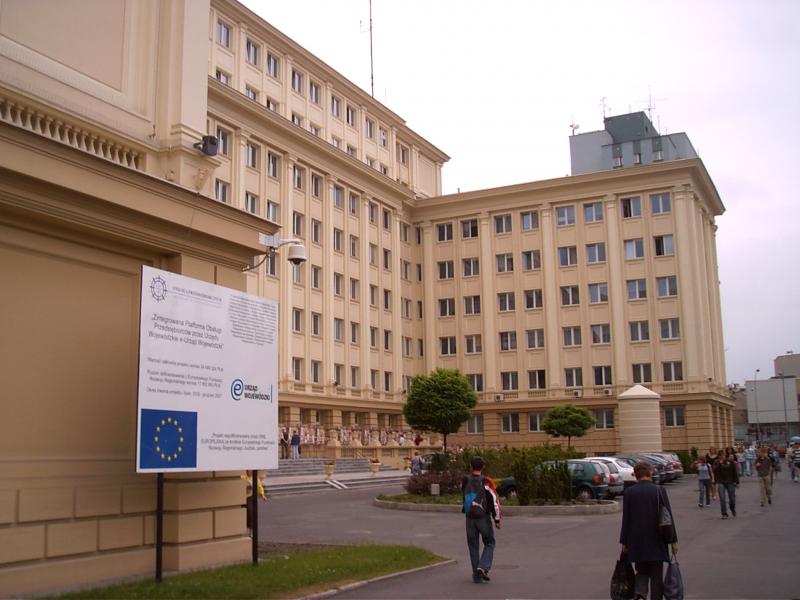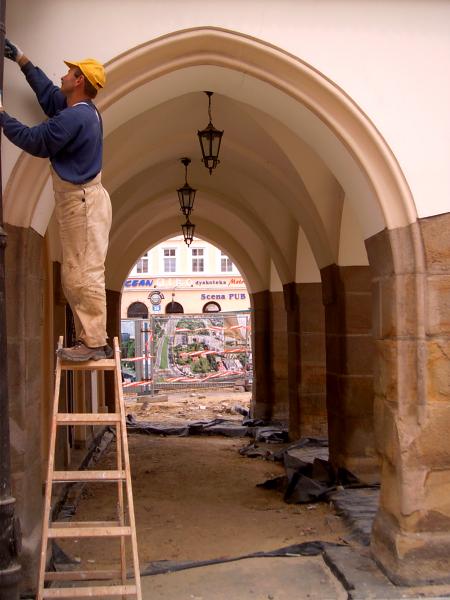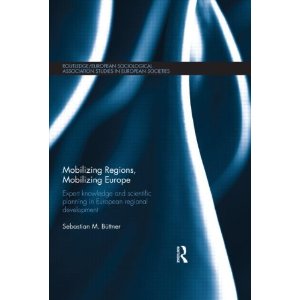Abgeschlossenes Dissertationsprojekt - Sebastian M. Büttner
Ph.D. Project conducted by Sebastian M. Büttner
within in the framework of the Research Group "Risks of Exclusion and Strategies of Inclusion in an enlarged Europe" funded by the Heinrich Böll Foundation (Berlin) at the Bremen International Graduate School of Social Sciences (BIGSSS)

Supervisors:
Prof. Dr. Steffen Mau, Bremen International Graduate School of Social Sciences (BIGSSS)
Prof. Dr. Ulrike Liebert, Universität Bremen
Prof. Dr. Richard Münch, Universität Bamberg
Short description of the project:
Why are regional strategies of development becoming so similar all around Europe, even though many European regions have become ‘self-determined’ development actors over the past decades and regional specificities are more pronounced now than they used to be? This observation of a somewhat peculiar standardised diversification of regions in contemporary European space forms the starting point of this study.
The research project departs from classical assumptions of the so-called world-polity-approach put forward by the neo-institutionalist Stanford school headed by John Meyer. At the centre of this perspective is the assumption of the world-wide diffusion of an academic expert-culture (“world-culture”), which constitutes the overarching cultural umbrella of (global) modernity and fosters the diffusion of quasi-scientific models, principles and practices. A key argument of this project is that the current wave of regional mobilisation is largely shaped by world culture and that sub-national territories are mobilised in the name of scientifically approved ‘myths’ of development. However, in marked contrast to orthodox modernisation theory the expansion of ‘world culture’ is not conceptualised as a teleological project that is automatically heading towards certain pre-determined goals. In fact, the world-cultural mobilisation of regions is conceived here as a relatively contingent and also fairly inconsistent project.

This general argument is further specified in this study by means of a comparative analysis of development strategies in three of the 16 newly created Polish administrative regions (so called “voivodships”) – namely: Dolnośłąskie in the West as well as Lubelskie and Podkarpackie in the East. Thus, apart from the analysis of the macro-structural conditions of regional mobilisation in contemporary EUrope this book also gives an in-depth account of the impact of world-cultural diffusion in particular social contexts. Admittedly, Poland as such constitutes a rather strong affirmative example of world-cultural diffusion, since this country has witnessed a tremendous transformation from Soviet communism to Western democracy and capitalism within a short period of time. Beyond this, the process of region-building and attempts at regional mobilisation in Poland have been strongly influenced and indeed brought about by European integration. On the other hand, however, two of the selected Polish regions (Lubelskie and Podkarpackie) present difficult cases for the assumption of a strong ‘world-cultural’ drive of regionalisation in contemporary EUrope. They are among the least developed regions in the current territory of the European Union and seemingly do not meet the standards of the new knowledge-intensive development agenda in today’s Europe. In this way, this study shows the impact of world-cultural mobilisation in an area which has been disregarded in existing studies of regional development and post-industrialism.
So far, the emergence of regions as focal points and agents of social mobilisation has not yet been explored from a world-polity perspective. During the past three decades the proponents of the world-polity school have mainly put forward their postulations of world-cultural diffusion by way of large-scale quantitative analyses of the world-wide spread of Western nation-state models, organisations, organisational principles, as well as certain ‘world-cultural’ norms and ideas. Thus, this study adds to this broad and prominent strand of research a more in-depth qualitative account of world-cultural diffusion and proposes to consider ‘the region’ as a new and particular locus of world-cultural diffusion. Furthermore, this study also provides an account of Europeanisation which situates the particular social and cultural dynamics of policy-making and institution-building in contemporary EUrope within the broader picture of globalisation. Therefore, this book also fills a gap in contemporary EU studies which was recently bemoaned by Gerard Delanty and Chris Rumford in their ground-breaking contribution “Rethinking Europe” (Routledge, 2005).
The project has been finished in November 2009, and published in March 2012 with the title:

For more information on the project and the book, please do not hesitate to contact me.








